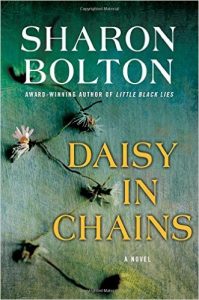I’ve seen many fall-books list in the last couple of weeks, but they all seem to have the same five books on them. Well, WE’RE RECOMMENDING ALL DIFFERENT BOOKS.
(I’m not punchy, just hungry. And tired of seeing the same five books on lists.)
Here’s what we really liked and want you to read this month.
From Jen at Brown Dog Solutions:
Darktown by Thomas Mullen (September 13, 37 Ink/Atria)
Blending historical fiction with a police procedural, Thomas Mullen has imagined the lives of the first eight black officers on the Atlanta, Georgia, police force in 1948. The realism tears at the readers’ hearts while the suspense keeps them glued to the plot. It’s a magnificent work of art.
When a young black woman is found brutally murdered and left in a pile of trash, partners Lucius Boggs and Tommy Smith decide they are going to find the murderer. They know the white detectives won’t make any effort, but Boggs and Smith could lose their jobs for pursuing the case.
As part of the black officers unit, they don’t have a patrol car, can’t arrest a white suspect, and aren’t even allowed in the main police department; they’re relegated to the basement of the YMCA.
But not long before she was killed, Boggs and Smith had seen the woman in the car of a drunk, white man who hit her. They feel an obligation to find out exactly what happened, no matter what it costs them.
Mullen doesn’t soft play the racism or bigotry of the era, and his despicable antagonists are as complexly drawn as the conflicted protagonists. Mullen has been quoted as saying he’d like to revisit these characters, and that’s the only consolation to turning the last page in Darktown.
From Lauren at Malcolm Avenue Review:
The Red Bandanna by Tom Rinaldi (September 6, Penguin Press)
Imagine losing a child in the Twin Towers on 9/11 and not knowing how or exactly where. Then imagine reading a post-attack article in which survivors describe the courage of the man who saved their lives—a man wearing a red bandanna tied around his face, a bandanna just like your son carried with him every day since he was a boy.
The story of Welles Crowther, that bandanna-wearing young man, is shared by Tom Rinaldi in The Red Bandanna. Emotional but not overwrought, Rinaldi’s writing strikes just the right tone in setting out just who Welles was and the upbringing that turned him into a man who, when faced with a raging inferno, went back up instead of out to safety.
After the first half of background, buckle up for a stirring reenactment of the events of Welles’s final moments, and the impact he had on those he left behind.
When President Obama spoke at the dedication of the memorial museum in 2014, he only mentioned one name: Welles Crowther. Rinaldi’s recounting of the story is well worth a read and one to which we should bear witness.
One-Hundred-Knuckled Fist: Stories by Dustin M. Hoffman (September 1, University of Nebraska Press)
Dustin M. Hoffman has an extraordinary voice. To be more accurate, Hoffman has many voices, as evidenced by the sixteen distinct stories in his debut collection, One-Hundred-Knuckled Fist.
Each piece is an ode to the blue-collar worker, a cross section of some of society’s most forgotten and invisible individuals: painters, hardscapers, commission salesmen, and ice-cream truck drivers (to name a few), along with the homeless and the unemployed, each trying to make their way under the pressures their lives and the world exert on them.
The stories in this collection are wonderful and weird and gross and gritty and ingenious. Some made me say, “What the hell?” Others made me silent with awe. To a one they kept me glued to the page.
Although the blue-collar theme is carried throughout, each work is idiosyncratic in its own special way. I highly recommend this collection, winner of the 2015 Prairie Schooner Book Prize.
From Patti at Patti’s Pens & Picks:
Hidden Figures: The American Dream and the Untold Story of the Black Women Mathematicians Who Helped Win the Space Race by Margot Lee Shetterly (September 6, William Morrow)
This book is about black women being hired by the National Advisory Committee for Aeronautics (NACA, precursor to NASA) during WWII to do computations as new airplanes were being designed to win the war.
Most of these women had had the opportunity to go to college and studied math. Many selected teaching as a profession as they could get jobs teaching in the then-segregated schools. Several started working at NACA as a summer job, but they stayed on as they made more money there than teaching.
The women we learn the most about are fascinated with math, and the ways they could use math to solve aeronautical problems so that airplanes, and eventually spaceships, could fly higher, faster, and more safely.
These women were very much like the women of today. They worked long days, were married, did the shopping, cooking, went to church, participated in their communities, raised children, and challenged them to follow in the women’s footsteps. They also participated in the civil rights movement, both in the workplace and out in their communities.
I admire these women so much, and the math they were capable of doing, and then how it impacted America’s progress with aeronautics during WWII, and then later with the moon landing.
[Ed. note: The movie adaptation of this book will be released on December 25, 2016.]
From PCN:
Daisy in Chains by Sharon Bolton (September 20, Minotaur)
 Last year, one of my top three favorite books was Sharon Bolton’s Little Black Lies. She’s one of those authors who, well, if I’m eating a pizza after being lost in the woods for a week and someone says, “This Bolton book for your pizza,” I’d hand over the pizza even if a slice was halfway to my mouth.
Last year, one of my top three favorite books was Sharon Bolton’s Little Black Lies. She’s one of those authors who, well, if I’m eating a pizza after being lost in the woods for a week and someone says, “This Bolton book for your pizza,” I’d hand over the pizza even if a slice was halfway to my mouth.
Bolton’s latest, Daisy in Chains, has that creepy atmosphere she’s so good at creating, and a strong female protagonist who intimidates or rubs everyone the wrong way—another welcome staple of the author’s work.
In this standalone, Maggie Rose is an attorney who specializes in overturning convictions, even of the vilest criminals. She’s trying to decide if she should take on the appeal of surgeon Hamish Wolfe, convicted serial killer of women. He’s charming and all, and keeps proclaiming his innocence (don’t they all?) but she doesn’t know if she can trust him. She embarks on her own investigation and of course it leads her to some pretty dark places.
Bolton’s prose has a mesmerizing quality, and unlike Maggie’s reaction to Hamish, I surrendered to Daisy in Chains.






4 Comments
Lauren
September 13, 2016 at 6:49 amJen – I finished Darktown a while back and wholeheartedly agree with your sentiments. It is a work of art.
Patti – I hadn’t heard of this one! It sounds great, thanks for highlighting it. Math made interesting. 🙂
PCN – Pizza? You’d give up your pizza? Now that is a testimonial.
Pop Culture Nerd
September 15, 2016 at 12:49 pmThat is the strongest testimonial I can give.
SarahRH
October 3, 2016 at 1:16 pmHalfway through DARKTOWN and loved LITTLE BLACK LIES. I have DAISY IN CHAINS in my TBR. Can’t wait to start that.
Pop Culture Nerd
October 6, 2016 at 5:28 pmYou have great taste, Sarah!